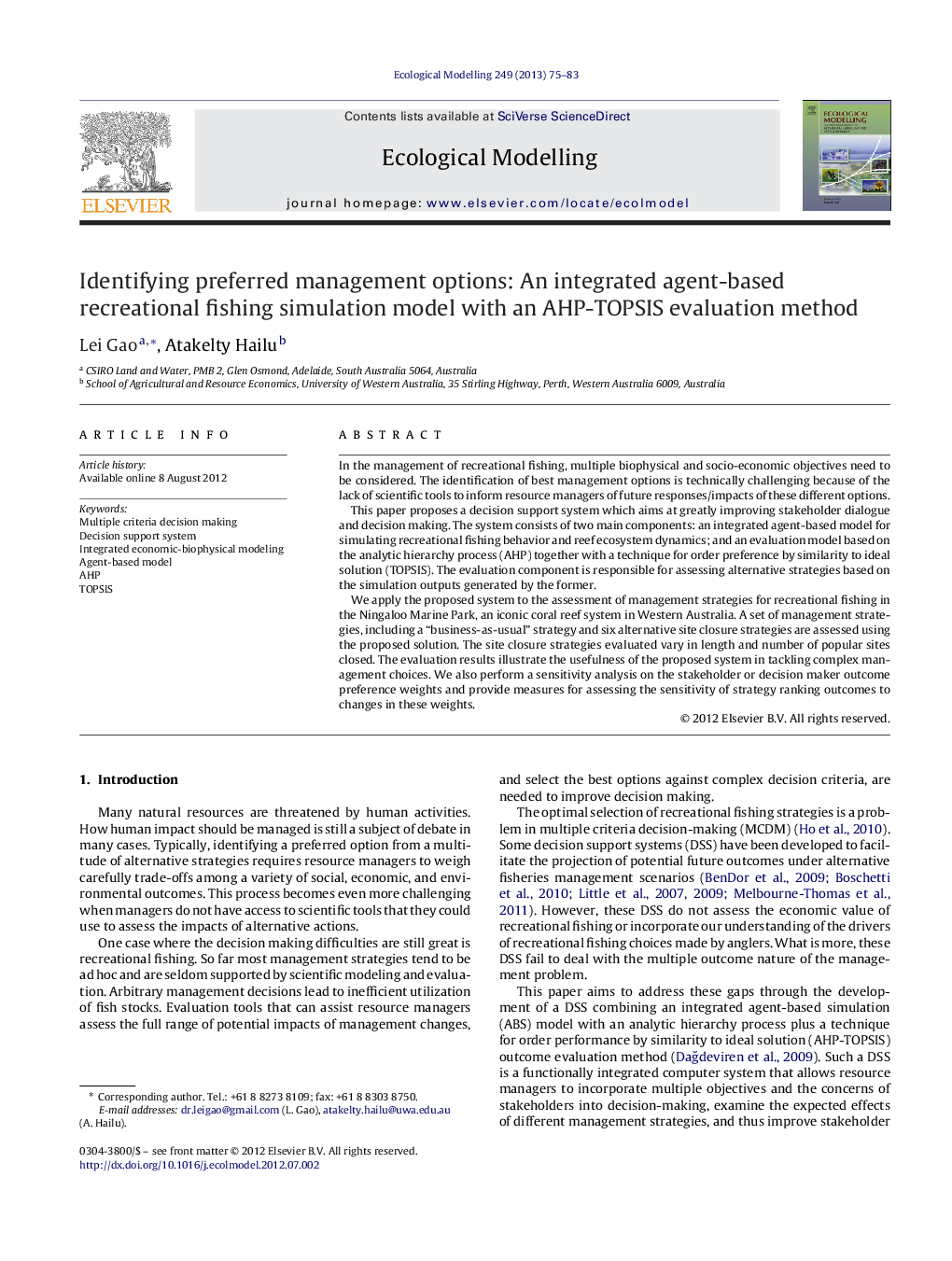| Article ID | Journal | Published Year | Pages | File Type |
|---|---|---|---|---|
| 4376279 | Ecological Modelling | 2013 | 9 Pages |
In the management of recreational fishing, multiple biophysical and socio-economic objectives need to be considered. The identification of best management options is technically challenging because of the lack of scientific tools to inform resource managers of future responses/impacts of these different options.This paper proposes a decision support system which aims at greatly improving stakeholder dialogue and decision making. The system consists of two main components: an integrated agent-based model for simulating recreational fishing behavior and reef ecosystem dynamics; and an evaluation model based on the analytic hierarchy process (AHP) together with a technique for order preference by similarity to ideal solution (TOPSIS). The evaluation component is responsible for assessing alternative strategies based on the simulation outputs generated by the former.We apply the proposed system to the assessment of management strategies for recreational fishing in the Ningaloo Marine Park, an iconic coral reef system in Western Australia. A set of management strategies, including a “business-as-usual” strategy and six alternative site closure strategies are assessed using the proposed solution. The site closure strategies evaluated vary in length and number of popular sites closed. The evaluation results illustrate the usefulness of the proposed system in tackling complex management choices. We also perform a sensitivity analysis on the stakeholder or decision maker outcome preference weights and provide measures for assessing the sensitivity of strategy ranking outcomes to changes in these weights.
► We present a decision support system for evaluating fishery management options. ► The system is used to simulate fishing activities and assess management strategies. ► The system incorporates stakeholder preferences in assessing multi-criteria outputs. ► Six management options with different site closure lengths and degrees are assessed. ► A sensitivity analysis is performed on the stakeholder preference weights.
